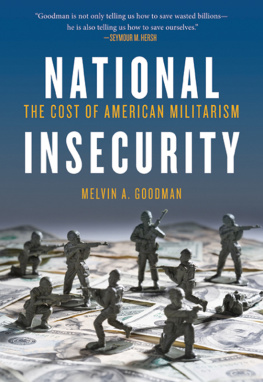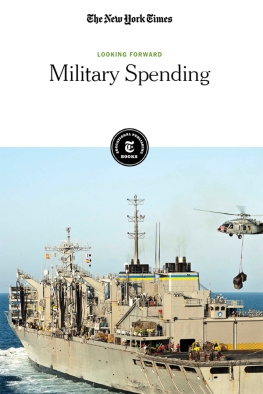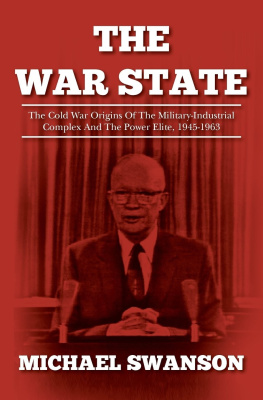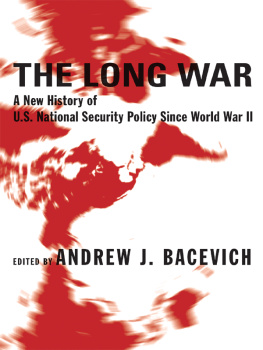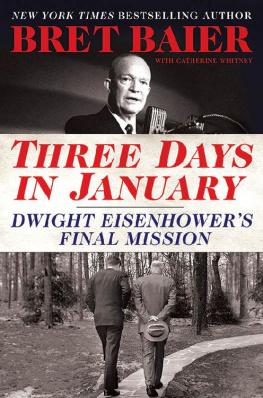PRAISE FOR MELVIN GOODMANS
National Insecurity: The Cost of American Militarism
In this impassioned expos of the astronomical costs of Americas defense policy, former CIA analyst Goodman demonstrates how postcold war neoconservatives... promoted a pugnacious militarism that has led to a string of foreign policy debacles and unprecedented levels of military spending. Few will finish this precisely argued polemic without the uneasy feeling that military spending is out of control. Publishers Weekly
A 25-year CIA veteran examines how recent presidents have handled the military and defense spending. Engaging reading for those interested in foreign policy and military spending. Kirkus Reviews
Melvin A. Goodwin is a damn fine author, and National Insecurity is a damning assessment of U.S. defense spending and covert operations. New York Journal of Books
In National Insecurity Mel Goodman shows how every president since Eisenhower has ceded authority to the Pentagon, to the detriment of our security and our democracy. But he doesnt just lament this dangerous condition he provides a road map for demilitarizing our security policy at abroad and at home. William D. Hartung, author, Prophets of War: Lockheed Martin and the Making of the Military-Industrial Complex
PRAISE FOR MELVIN GOODMANS
Failure of Intelligence: The Decline and Fall of the CIA
This is an important and eye-opening account for policy makers and concerned citizens alike. Publishers Weekly, Starred Review
In this study, Mel Goodman tells us that of the misunderstandings, mistakes, and misapplications of American intelligence and force that weve seen since 9/11 are nothing newour CIA has been at it since the early days of the Cold War. But Goodman also tells us, with fresh information and insight, about the CIAs successes in those years and, most importantly, he names names again and again. His purpose is not payback, or Gotcha, but to right a dangerous wrong. Seymour Hersh
Mel Goodmans career in intelligence has positioned him perfectly to document the Failure of Intelligence, as he has in this critical, timely book. Mel Goodman thoroughly details the Bush administrations lies and manipulations in the lead-up to the invasion and occupation of Iraq, as only a CIA insider could. As the lame duck Bush administration beats the drum for war with Iran, Mel Goodmans Failure of Intelligence is essential reading. Amy Goodman
One of the agencys prickliest and most highly regarded analysts, Melvin A. Goodman, has given us an insider autopsy.... What is most valuable here is the amassing of insider details. Bookforum
NATIONAL
INSECURITY
The Cost of American Militarism
Melvin A. Goodman

Open Media Series
City Lights Books | San Francisco
Copyright 2013 by Melvin A. Goodman
All Rights Reserved
Cover design by John Gates at Stealworks
Cover image by Glow Images/Glowimages/Getty Images
This book is also available as an e-edition: 978-0-87286-595-2
Library of Congress Cataloging-in-Publication Data
Goodman, Melvin A. (Melvin Allan), 1938
National insecurity : the cost of American militarism / Melvin A. Goodman.
p. cm.
Includes index.
ISBN 978-0-87286-589-1
1. United StatesMilitary policy. 2. MilitarismUnited States. 3. National securityUnited States. 4. National securityUnited StatesDecision makingHistory. 5. United StatesMilitary policyDecision makingHistory. 6. Eisenhower, Dwight D. (Dwight David), 18901969Influence. 7. Weapons systemsGovernment policyUnited States. 8. Military bases, AmericanForeign countries. 9. United StatesForeign relations. 10. Strategy. I. Title. II. Title: Cost of American militarism.
UA23.G734 2013
355'.033573dc23
2012036018
City Lights Books are published at the City Lights Bookstore
261 Columbus Avenue, San Francisco, CA 94133
www.citylights.com
To Lini and our nine magical grandchildren:
Alex, James, Julia, Matthew, Willa, Quinn, Eleanor,
Eoin, and Rango.
CONTENTS
INTRODUCTION
ONE
TWO
THREE
FOUR
FIVE
SIX
SEVEN
EIGHT
NINE
INTRODUCTION
AMERICAN MILITARISM:
COSTS AND CONSEQUENCES
Wherever the standard of freedom and independence has been or shall be unfurled, there will her heart, her benedictions and her prayers be. But she goes not abroad, in search of monsters to destroy... she is the champion and vindicator only of her own. John Quincy Adams
We have to recognize that no matter how great our strength, we must deny ourselves the license to do always as we please. No one nation... can or should expect any special privilege which harms any other nation. Unless we are all willing to pay that price, no organization for world peace can accomplish its purpose. And what a reasonable price that is! President Harry S. Truman
We in the United States have created a land of illusion. We have the worlds best medical facilities, but also its highest medical costs, and we still lack genuine universal health care coverage. Our costs for entitlements such as Medicare and Social Security are out of control, but we are unwilling to discuss reform. Our corporations and the wealthy classes pay the lowest taxes in the industrial world, but we adamantly oppose raising tax rates that could alleviate one-quarter to one-third of our deficit problem. We have the most expensive and lethal military force in the world, but we face no existential threat; nonetheless, liberals and conservatives alike declare the defense budget sacrosanct. A reasonable reduction in the amount of money we spend on defense would enable us to reduce our debt and invest in the peaceful progress and development of a civilian economy.
The United States has the most secure geopolitical environment of any major nation, but sustains a defense budget that equals the combined budgets of the rest of the world. Cuts in the defense budget over the next five years, announced in January 2012, were extremely modest, amounting to a minuscule 1 percent real cut when factoring in inflation. The cuts in Army and Marine personnel over a five-year period ending in 2017 will leave these services larger than they were in 2005. The mere lowering of recruitment quotas and the retirement of officers and noncommissioned officers will cover the modest reduction of the 92,000 troops.
Those who criticize even these modest reductions fail to recognize that, over the past two decades, the Cold War has ended and the greatest strategic threat to the United Statesthe Soviet Unionhas dissolved. Nevertheless, we barricade ourselves behind a national missile defense, fight wars in which no vital national security interests are at stake, and post hundreds of thousands of troops overseas. U.S. nuclear forces, which have no utilitarian value, remain the same, although President Obama persistently claims to support arms control and disarmament. The United States has become that militarized nation that President Dwight D. Eisenhower presciently warned against in his farewell address more than fifty years ago.
The United States lacks a strategic vision for a world without an enemy, and it continues to spend far more on defense, homeland security, and intelligence than the rest of the world combined. We are the only nation in the world that deploys its military primarily to support foreign policy rather than to defend our borders and people. U.S. corporations dominate the sales of military equipment, selling extremely sophisticated weapons to countries such as Saudi Arabia that have the hard currency to pay for them but lack the skill to use them. We have more than 700 military bases and facilities around the world; few other countries have any. We can deploy eleven aircraft carriers; among our rivals only China even plans to deploy oneand that is a revamped Ukrainian aircraft carrier, a carryover from the ancient Soviet inventory.

